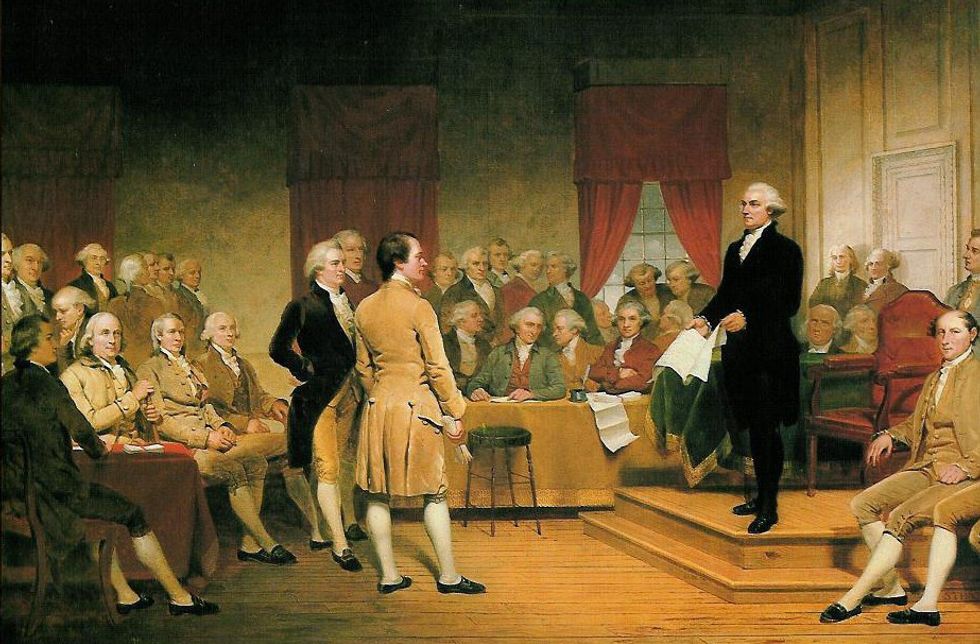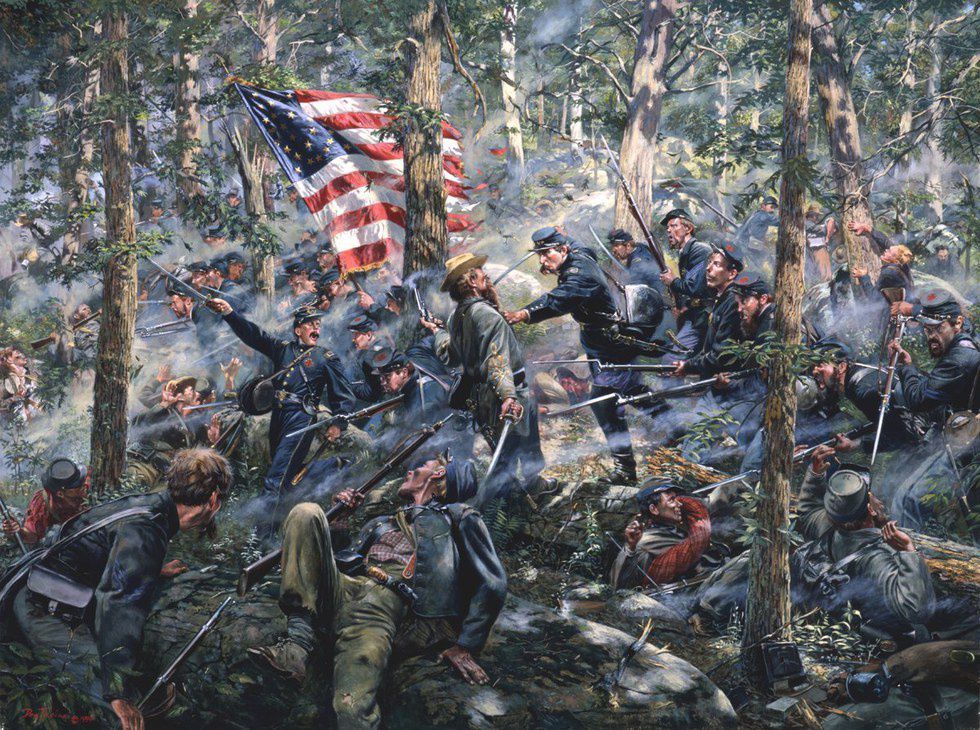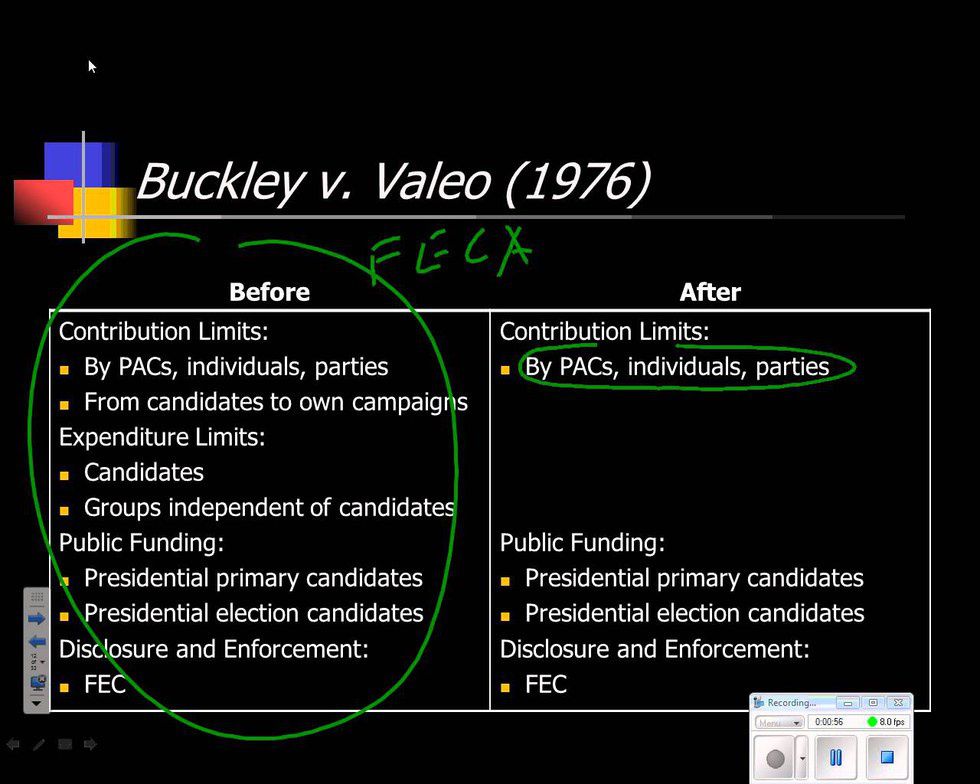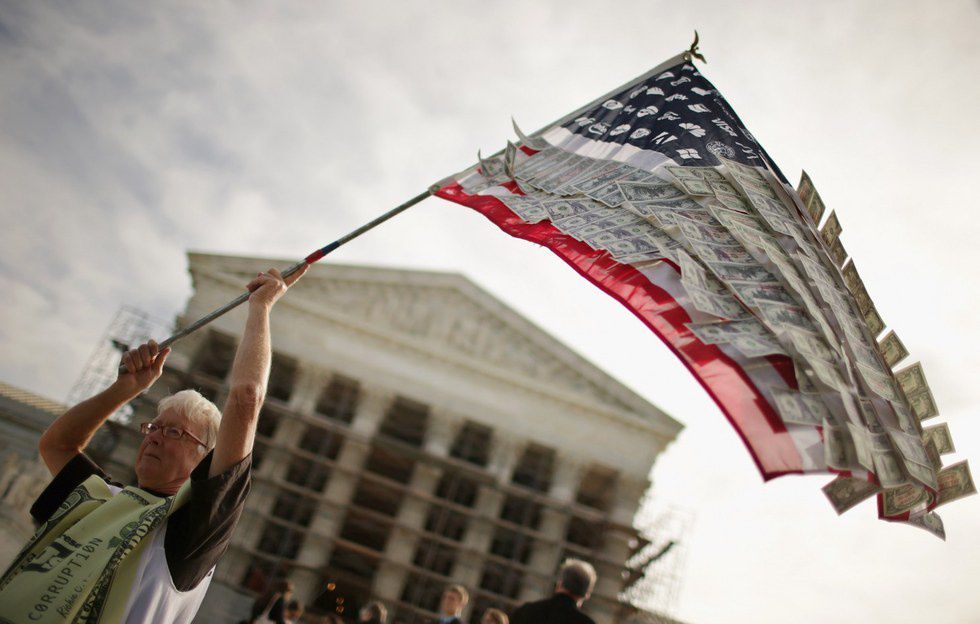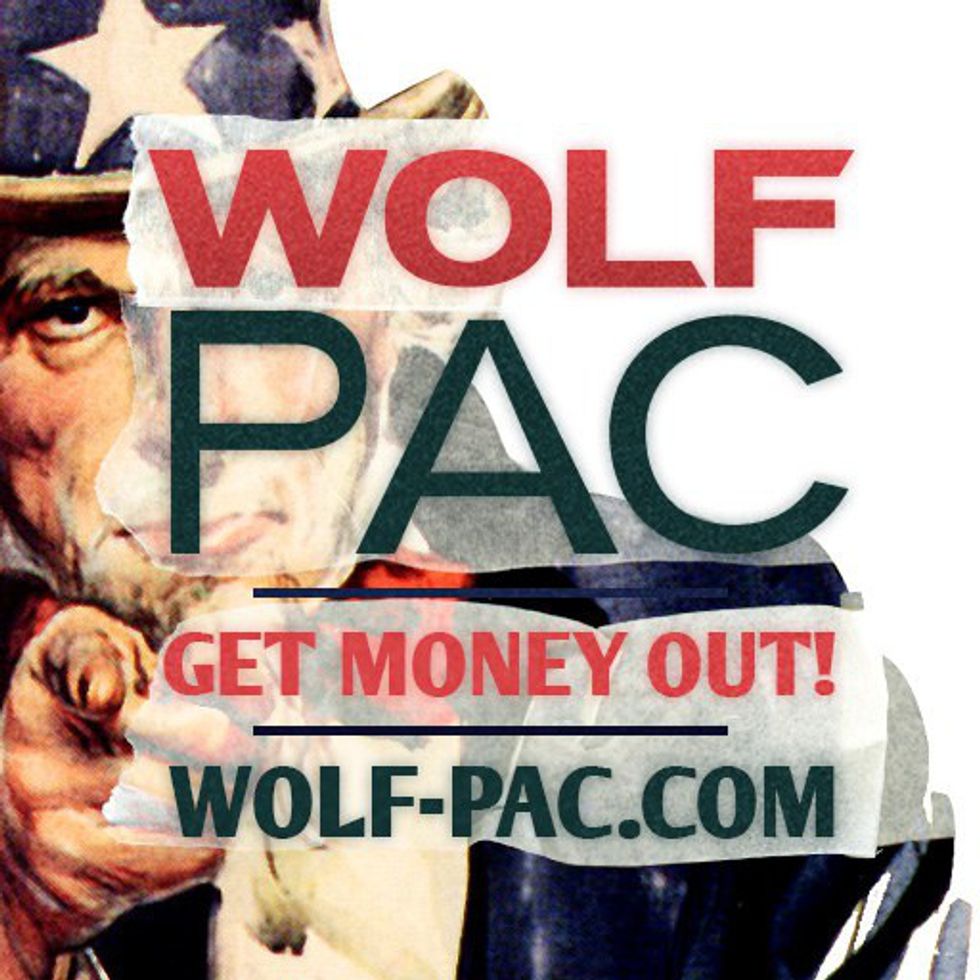Money in politics.
It's an issue I think we can all agree must be addressed, whether you are on the right or left side of the political spectrum. Almost every presidential candidate talks about it as a bad thing (which it is). I’m going to give you a brief history of it and how we, as American citizens, can fix it. The history of American Campaign finance starts after the American Revolution and the drafting of the Constitution in the late 18th century.
According to "Reclaim Democracy" during this time period, Europe, charters protected directors and stockholders from accountability for debts and harms caused by their corporations. Early American legislators rejected this corporate protection. The punishment for abuse of the charter was not a plea bargain and a fine, but the complete cessation of that corporation. In 1819 the U.S. Supreme Court attempted to strip states of this sovereign right by overruling a lower court’s decision that allowed New Hampshire to revoke a charter granted to Dartmouth College by King George III. The Court stated that since the charter contained no revocation clause (cancellation of a will) it could not be withdrawn. The Supreme Court’s attack on state sovereignty outraged citizens. Laws were written or re-written and new state constitutional amendments passed to avoid the Dartmouth College v Woodward ruling. Over a span of time starting in 1844, 19 state constitutions were amended to make corporate charters subject to change or cancellation by their legislatures.
Around 1855, it seemed that the Supreme Court had gotten the people’s message when in Dodge v. Woolsey it acknowledged state’s powers over “artificial bodies.” But, the CEO's of these corporations pressed on. Battles over charter were fights to control labor, resources, community rights and political sovereignty. More frequently, corporations were abusing their charters to become partnerships, trusts and, in the long run, monopolies. They were changing the country's resources and treasures into private fortunes, creating factory systems and company towns. Political power began shifting to absentee owners, instead of community-rooted enterprises. The Industrial Revolution forced a nation of farmers to become wage earners, and had a new fear of unemployment. Corporations learned to exploit this fear quickly. Company towns arose. Blacklists of labor organizers and workers who spoke up for safe conditions along with better pay became frequent. When workers began to fully organize, industrialists and bankers hired private armies to keep them in line (Ex. the Pinkerton's at the Homestead Strike). The newspaper industry was bought to paint businessmen as heroes to help shape public opinion. Corporations started buying state legislators, then later on announcing that legislators were corrupt and said that they used too much of the public’s resources to inspect every charter application and corporate operation.
With a huge wealth transformation like that happening in our country, politician's along with corporations started “you scratch my back, I scratch yours” kind of deals, and in 1850, a Republican U.S. senator from Pennsylvania named Simon Cameron, created the Pennsylvania Plan. This plan was to apply the wealth of corporations in political campaigns to help maintain the Republican majority in the legislative branch. In return cooperations would get tax breaks and more power.
"Reclaim Democracy" continues to say that, Civil War Government spending brought corporations amazing wealth. Corporate executives paid “borers” (lobbyists) to infest Congress and state capitals, bribing elected and appointed officials alike. During this time, legislators were persuaded to give corporations limited responsibility and increased duration of charters. Corporations started to get bigger and bigger in America after the war. Industrial tycoons looked like they were running the government and not the elected officials. Citizens were done with having their voices suppressed by big money in government. This sparked the Progressive Era in the late 19th century, a time when the people elected Progressive politicians who knew that it was time to take action and stop the excessive amount of money going into the political system.
The first big piece of legislation they started with was the Pendleton Civil Service Act of 1883, which prohibited all federal workers from directly contributing to political campaigns. This loss in a major funding source for candidates then put more pressure on political parties to get more funding’s from both corporations and individual people. We then fast forward to the election of 1896, where Republican William McKinley and Democrat William Jennings Bryan faced off. McKinley got most of his campaign money by directly asking wealthy donors, banks and corporations to contribute, which then helped him win. This was the most expensive election in American History, until 1968 because of the rise of huge Business Tycoons like Rockefeller, Carnegie, and J.P Morgan contributing to McKinley, outspending William Jennings Bryan (a progressive) five to one.
After McKinley’s assassination in 1901, Theodore Roosevelt (McKinley's VP), took up the fight against big money in government and wanted campaign finance reform. He signs and sponsors the 1907 Tillman Act, which banned corporations and interstate banks from directly giving money to candidates. It wasn’t effective at all because the enforcement mechanisms didn’t work. In 1925, the Federal Corrupt Practices Act was created in the aftermath of the famous Teapot Dome Scandal; this act limited general contributions from big donors. Then, the Hatch Act of 1939 set the annual ceiling of three million dollars for political party’s campaign spending, and 5,000 dollars for individual campaign contributions. Later on, the Smith- Connally Act of 1943 and The Taft- Hartley Act of 1947 restricted the direct money, activities and power of labor unions in campaigns. So now, corporations and unions cannot directly give political campaigns any money. This then creates something called Political Action Committees or PACs. They are corporation entities that are separate from the corporation but funded by them. Their main goal is to push for their policy or help their candidate win.
We then fast forward with the creation of the Federal Election Commission Act of 1971. After the Watergate scandal in 1972 and Nixon’s resignation in 1974, the FECA was then expanded with a series of amendments. Its main job was to level the playing field and to make it so that one PAC is not more powerful than the other. It limited hard money (the amount of money that one individual could give directly to one PAC), created disclosure laws (not giving money in secret), and started the “idea” of publicly financed elections. But in 1975, a New York Senator named James L. Buckley (older brother of William F. Buckley Jr. whom there is a new documentary on Netflix called Best of Enemies that I highly recommend) sued the FEC, claiming that limiting campaign contributions was against the first amendment. The outcome was that all of the restrictions of the new FEC laws were constitutional, except the court said that candidates have the right to spend as much as they want along with groups independent of candidates like the NRA or lobbying groups. PAC’s still had a cap of spending to it though, as seen in the picture below.
This has benefited Donald Trump, who has been self-funding his own campaign (so he says). PAC's, after this law, then turn to media and start creating commercials. In 2002, The Bipartisan Campaign Reform Act (BCRA) was put into place. The main part of this legislation is section 203. It bans corporations and PAC’s from running ads 30 days before an election, and 60 days before a primary. After this ruling, we saw the rise of groups called 527’s. 527’s are basically PAC's, but they are not regulated by state or federal finance laws because they do not “expressly advocate” for the election or defeat of a candidate or party. These are more issue-oriented groups, not political party groups. Citizens United, a conservative non-profit group (kind of like a 527) went to court in 2004 and attempted to use BCRA to bring up Michael Moore’s movie "Fahrenheit 9/11" to the FEC.
They contended that the movie and the ads for the movie were violating section 203 of BCRA. The FEC ruled in favor of Michael Moore saying that his movie wasn’t meant to influence the 2004 election but was just doing it for commercial enterprise and was doing it for artistic reasons. Citizens United then made a movie called "Hillary: The Movie" trying to copy what they think Michael Moore did with "Fahrenheit 9/11." It’s a very critical movie about Hillary Clinton, and the group had a lot of corporate money behind it. Citizens United wanted to use their general treasury funds for the movie and for ads, they wanted this to air in New Hampshire in 2008. They did this and they broke many of the FEC rules on campaign finance. It really hurt Hillary’s run for the presidency. The FEC told Citizens United that they were breaking section 203 of BCRA, and Citizens United sued. The courts weren’t actually asked to make a sweeping ruling, there was a fairly narrow question: could this self-proclaimed media company have its product not be a campaign contribution but just simply a piece of journalism? But Chief Justice John Roberts had an interest in this case. He basically said after the first hearing of this case that you can argue that it’s not about this film. He said how about we throw in the regulation of corporate money in political campaigns also; a totally different case from the beginning of the whole thing. The Supreme court ruled 5-4 in favor of Citizen’s United; that giving money to a candidate for a campaign is protected under the first amendment and that corporations are people (According to the 14th amendment). This term is now coined "corporate personhood," and basically rips up every amendment in the original FEC Act of 1971. PAC’s have so much political power now because people can just pour unlimited money into them, it's unfathomable.
So what can we do to stop all of this money being poured into our political system? Well, I am a volunteer for Wolf-PAC, a non-profit, non-partisan PAC that was started in 2011 during an Occupy Wall Street Rally by Young Turks host Cenk Uygur. Here is part of Wolf-PAC’s mission statement from their website: “To restore true, representative democracy in the United States by pressuring our State Legislators to pass a much needed Free and Fair Elections Amendment to our Constitution. There are only 2 ways to amend the Constitution. (1) Go through our Federal Government (2) Go through our State Legislators via an amendments convention of the states. Wolf PAC believes that we can no longer count on our Federal Government to do what is in the best interest of the American people due to the unfettered amount of money they receive from outside organizations to fund their campaigns."
We are calling for a Second Constitutional Convention from the states, not from the federal government. It has never been done this way in United States history, but we have no choice. Most the politicians in Washington, D.C are taking money from their donors who benefit from this post Citizen’s United decision and they will never support a second convention. Right now, we have four states that that have said they want a convention. They are Vermont, Illinois, California and New Jersey. The process of it is really hard; you have to get it introduced into the house and senate of that state, then get co-sponsors for the bill, you have to get it in committee then out of committee. Then finally, get both the house and the senate to pass it. But we have to stop government from just listening to the people with the most money, and start listening to what the American people want. Join me at Wolf-PAC and together we can restore our Republic for our children and end this American plutocracy.




